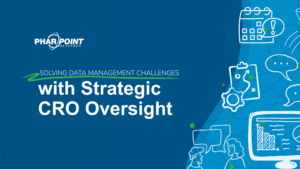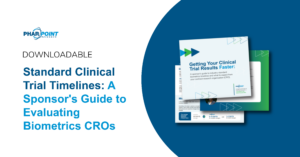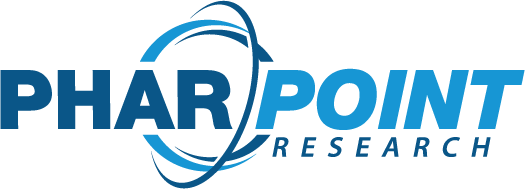
Sponsors occasionally face unexpected hurdles with their data management vendors —missed timelines, inconsistent data quality, and inefficient workflows.
These challenges can delay critical milestones like database lock and compromise the integrity of clinical trial data.
In a recent analysis of clinical trial costs conducted by Tufts CSDD, a Phase III clinical trial spends, on average, $55,716 per day in direct costs. When issues are identified early, sponsors can get vendors back on track and back on time through data management CRO oversight, potentially saving hundreds of thousands of dollars in costs due solely to inefficient operational strategies.
We spoke with a PharPoint Data Management consultant who regularly partners with sponsors to provide this oversight, and she discussed three common findings.
One
Your data management CRO isn’t fully leveraging technology.
One common challenge is an over-reliance on manual processes for data cleaning. Manual review can introduce inefficiencies and increase the risk of errors, as humans are naturally prone to oversight.
At PharPoint, most of our data cleaning tasks are supported by SAS programming. This allows for faster, higher-quality processing of large datasets and reduces the risk of human error.
Another contributing factor to poor technology adoption can be insufficient training for data coordinators. Without exposure to advanced tools or techniques – such as SAS or enhanced Excel functionality – team members may not realize what is possible beyond manual review. Comprehensive training and a collaborative team can help bridge this gap.
Two
Your data management CRO is waiting until database lock to conduct 90% of the data cleaning.
Another key observation is the tendency of data management teams to lag behind in data cleaning efforts until the database lock stage. When the majority of cleaning happens at the end of a study, it creates bottlenecks for all stakeholders — data managers, CRAs, and site staff.
Early and ongoing cleaning throughout the study lifecycle helps maintain data quality, reduces last-minute surprises, and ensures a smoother path to database lock. Ultimately, this approach helps teams supports timely deliverables with the highest data quality, whether for interim analyses, regulatory submission requirements or final database lock.
Three
Your data management CRO doesn’t collaborate with their biostatistics team.
Data Management and Biostatistics often operate as separate functions, yet their work is highly interconnected. Early collaboration with biostatisticians can provide data managers with valuable context and prevent downstream challenges post-database lock.
In one recent example of this cross-functional teamwork in action, the PharPoint data management team was determining how to best report a complex screen failure situation. The team held discussions with the biostatistician to help brainstorm, who was able to inform on which potential data entry solutions under consideration would impact final analysis outputs. What the data management team was considering as the leading option was ultimately decided against with the input from the biostatistical perspective.
This type of casual collaboration and integration across functions helps data managers proactively make informed decisions while keeping statistical endpoints in mind.
Partnering for Better Outcomes
There are many reasons why a sponsor may choose to engage a Data Management CRO Oversight partner, from addressing technology gaps to ensuring consistent quality and operational efficiency.
Regardless of current concerns, sponsors do not have to navigate these challenges alone. PharPoint’s data management consultants provide strategic oversight, guidance, and plans to help strengthen vendor performance, improve data currency, and accelerate timelines.
To learn more about our data management CRO oversight support solutions, reach out to our team.
RELATED RESOURCES

Solving Data Management Challenges with Strategic CRO Oversight

Achieving Expedited Database Lock with Director of DM, Wendy Moffett

A Guide to Reviewing Regulatory Documents as a Subject Matter Expert (SME)

Four Signs It is Time to Break Up with Your Regulatory Medical Writing Vendor

Standard Clinical Trial Timelines: A Sponsor’s Guide to Evaluating Biometrics CROs

